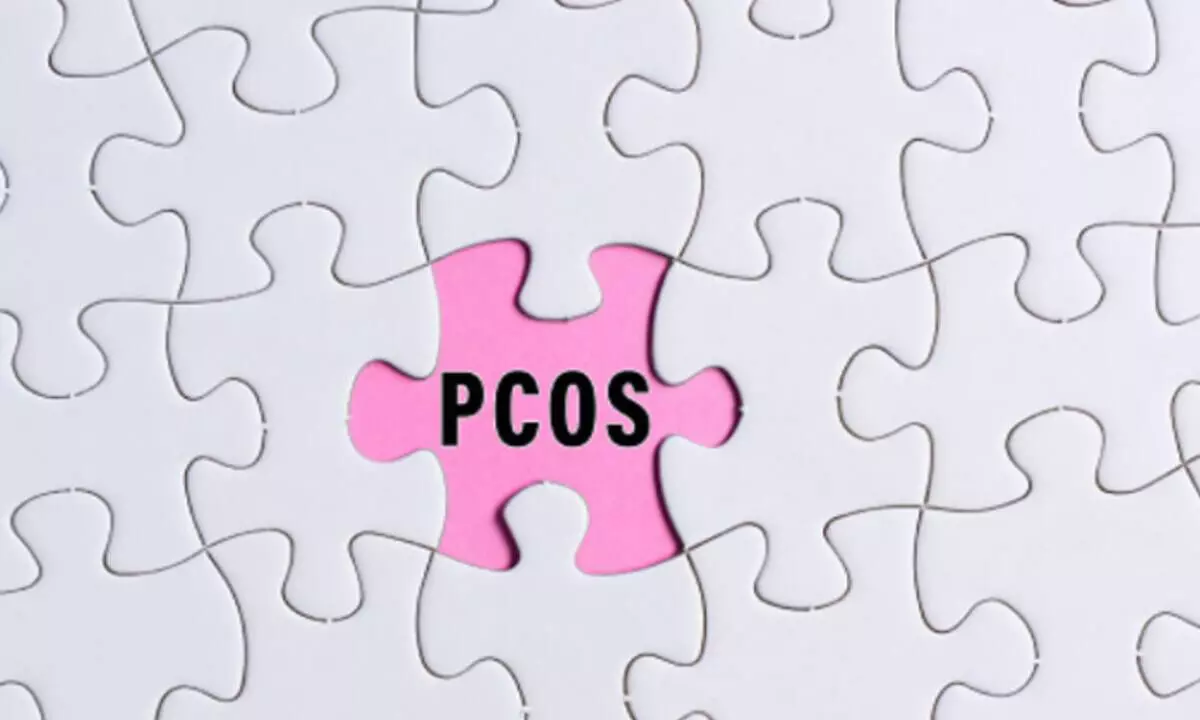Live
- Poonch terror attack: Security forces release sketches of two terrorists
- Constituency Watch: For BJP it’s fight for consolidation while Congress sees an opportunity to regain past glory in Nandurbar
- Congress, BRS, AIMIM following Muslim League agenda: J P Nadda
- PeopleStrong, Google Cloud join hands to transform employee experience with AI
- Siguler Guff invest Rs 240 crore in Hyderabad-based microfinance lender Spandana Sphoorty
- 'BJP CM will take oath in Odisha on June 10', roars PM Modi at Berhampur rally
- Five-year-old boy found dead after being swept away in Texas floodwaters
- Akhilesh appoints Shyam Lal Pal as new state president of SP
- Manipur: Educational institutions close for two days after heavy rains, hailstorm
- End of BJD rule on June 4, says Modi
Just In

Strategies for managing PCOS symptoms
Polycystic Ovary Syndrome (PCOS) affects millions of women worldwide, presenting a complex array of hormonal imbalances and health challenges. However, a proactive approach to managing its symptoms can significantly improve quality of life and overall well-being. Here’s a comprehensive look at expert strategies for navigating PCOS, empowering women to take control of their health.
Understanding PCOS: PCOS is a hormonal disorder characterized by irregular menstrual cycles, elevated androgen levels, and the formation of small cysts on the ovaries. These hormonal imbalances can disrupt ovulation and lead to a range of symptoms, including acne, excessive hair growth, weight gain, and fertility issues. Left untreated, PCOS can increase the risk of diabetes, heart disease, and other serious health conditions.
Weight management as a key component: Weight management plays a crucial role in PCOS management, as excess weight can exacerbate hormonal imbalances and insulin resistance, common features of the condition. Even modest weight loss can have significant benefits, improving hormonal balance, regulating menstrual cycles, and enhancing fertility. Adopting sustainable lifestyle changes, such as a balanced diet and regular exercise, is essential for long-term weight management and overall health.
Exercise for symptom relief: Regular physical activity is vital for women with PCOS, as it helps improve insulin sensitivity, promote weight loss, and alleviate symptoms. Incorporating a variety of exercises, including cardiovascular workouts, strength training, and yoga, can offer numerous benefits. Aim for at least 150 minutes of moderate-intensity exercise per week, tailored to individual preferences and fitness levels.
Dietary guidelines for PCOS: A well-balanced diet is critical for managing PCOS symptoms and supporting overall health. Focus on whole foods, including fruits, vegetables, lean proteins, and healthy fats, while minimizing processed foods and sugary beverages. Choosing low-glycemic index foods can help regulate blood sugar levels, while anti-inflammatory foods like fatty fish, nuts, and seeds can provide additional benefits. Consulting with a registered dietitian can help develop personalized meal plans to meet individual needs.
Lifestyle modifications: Stress management is essential for women with PCOS, as high stress levels can exacerbate symptoms and disrupt hormonal balance. Incorporating stress-reduction techniques such as meditation, deep breathing exercises, and engaging in enjoyable activities can help promote relaxation and well-being. Additionally, prioritizing adequate sleep is crucial, as sleep deprivation can negatively impact hormone regulation and overall health.
Seeking professional guidance: While lifestyle modifications are important components of PCOS management, it’s essential to seek personalized medical advice from healthcare professionals. A healthcare provider can offer guidance on appropriate medical treatments and therapies tailored to individual needs. By addressing common misconceptions and staying informed about the condition, women with PCOS can advocate for their health and well-being effectively.
In conclusion, PCOS presents unique challenges for women, but proactive management strategies can significantly improve symptoms and enhance overall quality of life. By prioritizing weight management, incorporating regular exercise, adopting a balanced diet, managing stress, and seeking professional guidance, women can navigate PCOS with confidence and empower themselves to lead healthy, fulfilling lives.
(The author is a Lead Consultant - Obstetrics & Gynaecology, Aster CMI Hospital, Bangalore)

© 2024 Hyderabad Media House Limited/The Hans India. All rights reserved. Powered by hocalwire.com







